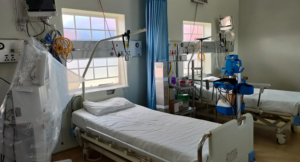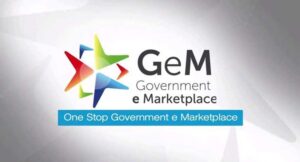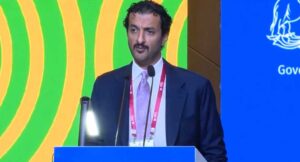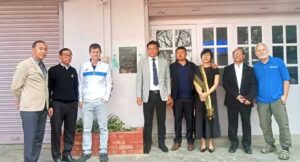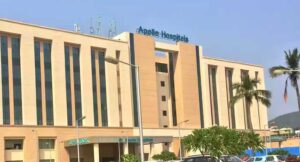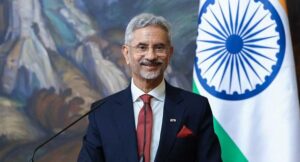External Affairs Minister S Jaishankar on Saturday emphasised the importance of global healthcare collaboration, stating that healthcare is a fundamental right, not just a privilege.
Addressing the 12th International Health Dialogue conference, Jaishankar highlighted India’s efforts in promoting healthcare as a fundamental right, citing initiatives like the Ayushman Bharat program, which provides health insurance to millions of citizens while addressing the gathering at a session titled ‘Global Changemakers – Transformation in Patient Safety’.
“In this day and age, health care is a fundamental right. It’s not just a privilege. The global south cannot be a hostage to uncertain supply chains and the vagaries of the global economy. The Covid period was a real learning experience for all of us,” said Jaishankar.
Jaishankar also stressed the need for international partnerships to strengthen healthcare systems, enhance patient safety, and ensure affordable access.
“We must be prepared for the next challenge. All of us want to strengthen healthcare systems, enhance patient safety, and ensure affordable access. These goals would be better achieved if we collaborate more closely. And to the world, therefore, my message would be of the importance of international partnerships,” said Jaishankar.
The EAM said that a lot that India contributes is through its own progress and example, highlighting the fact that India promoted the International Day of Yoga, the Lifestyle for Environment Initiative – LIFE Initiative, and more nutritious practices, such as the consumption of millets.
Jaishankar also gave the example of Ayushman Bharat Initiative, Aabha IDs, Jan Aushadi Kendras and the power of digital public infrastructure.
“The Ayushman Bharat Initiative, as you would have heard from other speakers, is today the world’s largest government health insurance. About 750 million of our citizens have received Aabha IDs, and they have access to 360,000 healthcare facilities and 570,000 healthcare professionals. To do this on such a scale at our level of per capita income is actually a testimony to the power of digital public infrastructure. And that, in turn, reflects the deep commitment to good governance of the Modi government. For many citizens, the cost of medicines required for the treatment of chronic ailments is also a particular anxiety. Here, too, we have demonstrated through the 14,000 Jan Aushadi Kendras, the people’s pharmacy, that caring policies and smart inventory management can bring down the cost of medicines for a common person,” said Jaishankar.
Furthermore, Jaishankar emphasized the importance of traditional medicine, highlighting India’s efforts to promote Ayurveda and other traditional practices.
“As we seek to balance tradition and technology as the twin forces of national progress, it is also natural that we will explore the relevance of our own heritage and culture to the health of our people, and by the way, encourage other societies in a similar position to do so. Especially during the Covid period, there was a sharper realization of the utility and efficacy of traditional medicine to preventive healthcare recovery and wellness. India has the privilege to host the WHO Global Centre of Traditional Medicine in Gujarat. As a government which created a department called AYUSH to promote these very practices and treatments,” said Jaishankar.
He noted that India has been actively promoting medical value travel through the “Heal In India” initiative, making it easier for foreign patients to receive treatment in India.
“Through the ‘Heal In India’ initiative, our government is committed to promoting medical value, travel, and making it easier for foreign patients to obtain treatment in India,” said Jaishankar.
Emphasising the importance of medical partnership in both the global south and north, the External Affairs Minister said there was an acute shortage of doctors, nurses, and health workers in the global north as well, including North America, Europe, and Japan.
“It’s not just the global south which requires a stronger medical partnership, so does the global north. There is an acute shortage of doctors, nurses, and health workers in a very large number of countries in the global north, in North America, Europe, Japan, and the Far East. When we negotiate mobility partnerships today, one driver of this is actually to help them address their growing health needs, which obviously has to take into account an ageing population,” he said.
Jaishankar also mentioned India’s contribution to global healthcare, including the dispatch of medical supplies to countries in need and the training of medical professionals in Africa.
“Recently, we dispatched 66.5 tons of medical supplies to deal with the humanitarian crisis in Gaza. A little before that, a consignment of 1400 kg of anti-cancer medicines was sent to strengthen the medical capabilities of hospitals in Syria. Even in Afghanistan, India has stepped forward with 300 tons of medicines in the last few years, as well as the dispatch of specialists to a hospital that we had built in Kabul,” he added.
The EAM further underscored the importance of Covid experience which was a reminder to many nations to develop national capacities in this crucial domain. He gave example of e-Arogya Bharti initiative where the Indian companies, as well as the Indian government sought to localize production and strengthen capabilities.
“One of our significant efforts in this direction has been the e-Arogya Bharti initiative to train medical students and paramedics in Africa through online classes. By diversifying the production of medicines and expanding the scale of medical professionals, we are strengthening the ability of the Global South to address its core concerns,” said Jaishankar.
In fact, India’s digital health initiatives, such as the Ayushman Bharat Digital Mission, have shown promising results in improving healthcare access and outcomes. The country’s experience in leveraging technology to strengthen healthcare systems could serve as a valuable lesson for other nations.
“India today has delivered more than 600 significant development projects in 78 nations across the world. Now, many of them are in the health sector. In parallel, the private health industry of India has also contributed to facilities and capacities in different geographies and I want to say today that we value this industry as a partner. From speciality hospitals to primary health centres, we have sought to make a difference across a wide spectrum,” added Jaishankar.
Jaishankar’s call for global healthcare collaboration comes at a time when the world is facing numerous health challenges. As India continues to play a significant role in promoting global healthcare, Jaishankar’s emphasis on international partnerships and collaboration is a timely reminder of the need for collective action to address the world’s health challenges.
“A large number of developing nations received made in-India vaccine (Covid) either through our ‘Vaccine Maitri’ initiative, or other global programs. Now, this was in contrast to many developed countries that had stockpiled vaccines to the multiples of their population. Indian medical teams also went out in the Indian Ocean region to deal with pressing situations in some smaller countries. But this was not just an exception made during the Covid era. In fact, it is part of our approach to the world both before and after,” said Jaishankar. ANI
